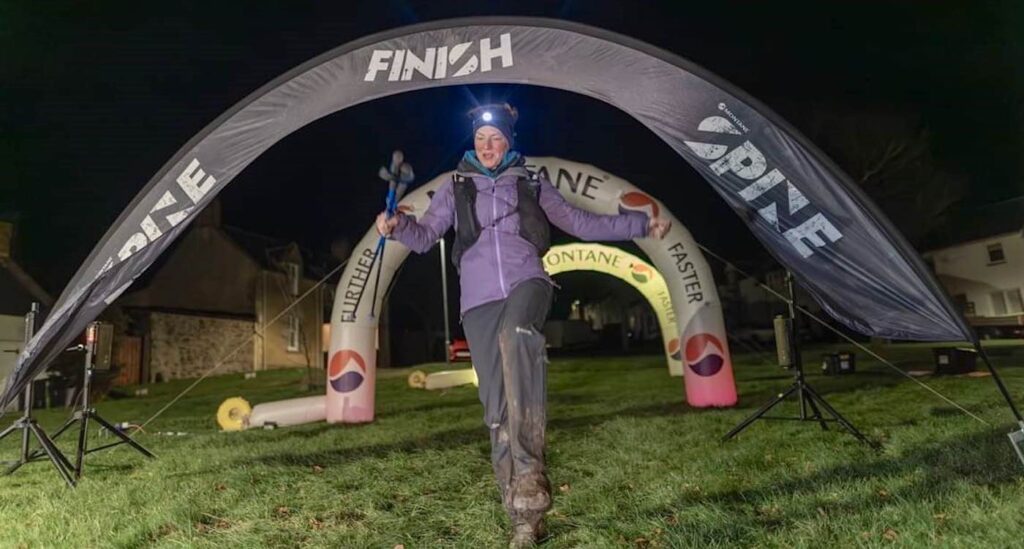Mel Sykes, a seasoned ultrarunner and podiatrist, recently completed the 268-mile Spine Race, showcasing remarkable mental and physical resilience. Eighteen months prior, she faced a daunting diagnosis of Chiari malformation, a condition that impacted her balance and neurological function, leading to a precipitous decline in her running ability. This journey highlights the often-overlooked realities of endurance sports; setbacks can fundamentally challenge your capacity to continue pursuing the sport you love.
In the face of adversity, Sykes was faced with a choice: yield to her condition or redefine her limits. The importance of mindset cannot be overstated here. After surgery to relieve pressure on her brain, she was told that her running days might be behind her. However, rather than allowing the possibility of permanent withdrawal to dictate her future, she embraced a mentality focused on gradual recovery and adaptation. This approach is fundamental for any endurance athlete who has ever faced injury or setback. It’s a reminder that the road to recovery isn’t linear; it demands patience, gradual increases in volume and intensity, and, most importantly, mental fortitude.
During her race, Sykes faced physical conditions that included nearly impassable snow drifts and extreme fatigue. The early stages from Edale to Hawes proved particularly taxing, but enduring these challenges became a test of not just physical capability but also strategic pacing—a skill honed by years of ultrarunning experience. Experienced athletes know that pacing is as important as strength; the ability to manage energy levels across multiple days is crucial. Each section of the race became a microcosm of endurance racing itself, demanding adaptive strategies and mental recalibration for each challenge that arose.
It’s not just the miles covered or the finish line that define such accomplishments, but the learning cultivated through the process. Sykes experienced moments that were both beautiful, like running under the sun at Hadrian’s Wall, and grueling, like pushing through the fatigue and discomfort that comes after days of continuous effort. These contrasts can serve as essential reminders for endurance athletes that racing is as much about endurance and resilience through discomfort as it is about the celebration of achievement.
One of the most critical aspects of Sykes’ journey is her ability to stay present. In ultrarunning, where thoughts can easily drift to past injuries or future obstacles, grounding oneself in the moment is vital. Sykes’ success in this race was not merely a matter of physical training; it involved mental conditioning to focus on the present and take each step as it came. The physical pain of cracked ribs, which she sustained just a mile and a half from the finish, becomes less important when viewed through the lens of the entire experience. It’s a testament to the power of mental resilience, which kept her moving forward, even in the face of injury.
In moments of extreme fatigue or hardship, community and support play an essential role in endurance sports. As Sykes navigated the challenges of the Spine Race, she was also part of a larger cohort of runners who share common goals and struggles. This community is one of the most powerful elements of endurance sports, where camaraderie often serves as a motivator, helping individuals push through their toughest moments. It’s this kind of shared experience, the acknowledgment of collective effort and endurance, that propels many athletes to achieve what might seem impossible.
Ultimately, Sykes’ journey serves as a reminder of what endurance athletes often face. It’s about more than just physical prowess; it’s a journey that encompasses mental adaptability, a deep-seated love for the sport, and an unwavering belief in the process of recovery. The race itself became an extension of her determination, a proof of concept for what can be achieved with resilience, patience, and commitment to continuous learning through struggle.
As you head out on your next long run, consider this: every mile is not just a path to your goal but an opportunity to assess your own resilience, commitment, and adaptability. Embrace whatever comes—discomfort, fatigue, or even moments of doubt—and focus on the process. After all, it’s not just the finish line that shapes you; it’s the entirety of the journey.
